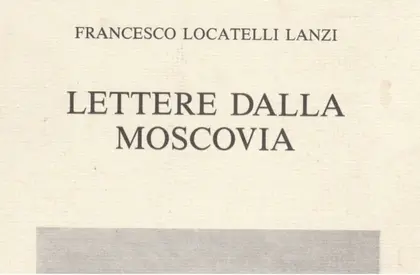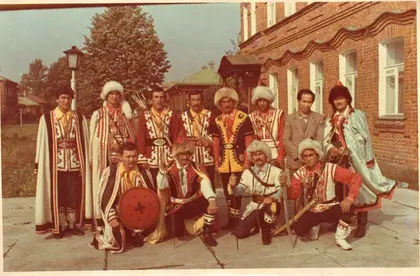The Bashkirs have suffered for centuries at the hands of what is now modern Russia. Their repression, subsequent uprisings and fight for what is morally and culturally theirs, sheds great light on Russia’s capacity for deceit, lies and aggression, and what needs to happen next for global peace and security.
The Bashkirs are an ancient people of Eurasia, formed in the Southern Urals as an independent ethnos in the first millennium AD. Indigenous to today’s Russia, the first written mention of individual tribes that became part of the Bashkir people are found in the writings of Herodotus (fifth century BC).
The historical lands of the Bashkir people, the so-called "Historical Bashkortostan" includes today's Chelyabinsk, Orenburg region, parts of Sverdlovsk, Kurgan, Perm regions and the Republic of Tatarstan.
There are approximately 1.7 million Bashkirs today, who follow the religion of Sunni Islam (Hanafi Maskhab).
In the middle of the 16th century, some Bashkir tribes concluded an agreement which saw them become part of the Moscow state. Most of the remaining tribes were eventually conquered and forcibly annexed. According to the agreement, the Bashkirs were to protect the southern territories and participate in any and all wars of the Moscow state. In return, the Bashkirs were assigned their own lands, where they were allowed to be sovereign owners (patrimonial right) and were granted full internal self-government.

Authentic Histories: Francesco Locatelli and His “Letters from Muscovy”
Moscow’s violations and Bashkir uprising
However, after only a short time, Moscow violated the agreement, seizing Bashkir lands and conducting attempts at forced Christianization. The Bashkirs responded with uprisings. These uprisings shook Russia for more than 200 years, many of which ended with the victory of the Bashkirs. The Bashkirs took an active part in the peasant war of 1773-1775 and fought against the tsarist government.
After the February revolution of 1917, when national consciousness began to awaken among all peoples, the Bashkirs chose their own government, formed their own national army and founded the First Bashkir Republic – Bashkurdistan.
A year after the March 1919 signing of an agreement between the Bashkir and Soviet governments on the recognition of the Bashkir Republic, head of Soviet Russia Vladimir Lenin violated the terms and annulled many of its clauses that were under the jurisdiction of the Bashkir government.
Attempts to maintain Bashkir identity
The 1990s saw a new chapter of a Bashkir national movement for the sovereignty of the republic. The Bashkir intelligentsia and the Bashkir public created "Ural" (the Bashkir People's Center) and the "Union of Bashkir Youth," which became the driving forces in the struggle for the sovereign Bashkortostan.
In 1993, a Constitution of the Republic was adopted, which reflected many aspirations of the Bashkir people. A year later, a Federation Agreement was signed between the Republic of Bashkortostan and the Russian Federation on the delimitation of powers and jurisdiction, according to which Bashkortostan was endowed with many rights as a republic within the Russian Federation.
However, with the arrival of Vladimir Putin, many of the republic's rights were taken away by the Kremlin. The Constitution of Bashkortostan was rewritten under pressure from Moscow with many articles and paragraphs stricken.
In response, the Bashkirs formed the national organizations "Cook Bure" and "Bashkort" which have sought to raise issues about protecting the rights and interests of the Bashkir people, and the return of the sovereignty of the Republic and the Constitution of Bashkortostan from 1993.
The Russian authorities then began acts of repression against Bashkir national activists. Criminal cases were opened against the leaders of the “Cook Bure” and “Bashkort,” and activists were imprisoned. In 2020, the "Bashkort" was banned. One of the founders, Ruslan Gabbasov, fled from Russia and found political asylum in Lithuania. He then formed the Bashkir National Political Center which coordinates political activities aimed at gaining independence of the Republic of Bashkortostan.
The Bashkir National Political Center has joined the League of Free Nations, where representatives of national and regional movements within the Russian Federation are striving for their nations' independence from Russia.
Language repression
In Bashkortostan, language has been weaponized and Russification is rampant. There has been a massive reduction in the use of the Bashkir language among the population as a means of communication. Indeed, the Bashkir language is not accepted in any institution, while almost all websites of state, municipal and educational institutions do not allow registration activities using the Bashkir language.
In the 2021-2022 academic year, 99 percent of students (504,977 people) studied their native language. Of these, 68% (345,509) chose Russian; just over a fifth (21%) Bashkir; and 9 percent (46,541) Tatar. Native languages of the national republics of the Russian Federation except Russian, ceased to be part of the compulsory school curriculum.
In January 2019, the Advisory Committee of the Framework Convention for the Protection of National Minorities of the Council of Europe criticized Russia for its national policy. Experts expressed concern about the "growing dominance of the Russian language" while at the same time "the lack of effective support for the languages of national minorities."
As part Russia's “divide and impera” pattern in Bashkortostan, nominal volunteer battalions were formed in the summer by the authorities, demonstrating, in their view, the active complicity of the region in the war between Russia and Ukraine.
“Volunteers” were promised large "combat" payments and were equipped and escorted to the front. The real losses among personnel were hidden or underestimated, and cases of refusal of volunteers to participate in battles were hushed up. The combat capability of the battalions were, and continue to be, very low.
The head of the Bashkir National Political Center, Ruslan Gabbasov, along with his associates, addressed an open letter to Ukraine’s President Volodymyr Zelensky, calling for him to initiate a draft resolution "On recognition of the Republic of Bashkortostan as an occupied territory."
As Gabbasov explained: "With this step, Ukraine will not only morally support the Bashkir national movement, whose main goal is to gain independence for our Motherland, but will also give us strong trump cards in the fight against the Kremlin and its puppets in Bashkortostan."
The letter concludes: "It is important that Ukraine begins to establish contacts with the national liberation movements, which already today demonstrate their desire for liberation and the creation of independent states."
It seems to be a morally correct and strategically prudent proposal. The dismantling of the Russian Federation is a political necessity for global peace and security.
The views expressed are the author’s and not necessarily of Kyiv Post.
You can also highlight the text and press Ctrl + Enter



